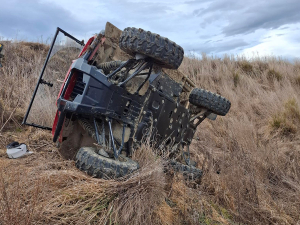Environment Southland says its regional climate change strategy is taking shape.
At this month’s Environment Southland Climate Change Sub-committee meeting, the Proposed Regional Climate Change Strategy (Phase One) was endorsed following submissions and hearings in the first half of this year.
The strategy has been in development since early 2023 as a collaborative inter-agency undertaking, with Environment Southland working alongside Te Ao Mārama Inc, Gore District Council, Invercargill City Council and Southland District Council – via a Regional Climate Change Working Group.
Climate Change Subcommittee chair and working group member Councillor Maurice Rodway says the strategy was consulted on from 29 February to 8 May and attracted 60 submissions.
“People were asked for feedback on the strategy, the aspirations, Murihiku Southland becoming a Net Zero region by 2050 or earlier, and what local climate change impacts they were most concerned about,” Rodway says.
Submissions were heard in May, and the strategy has been revised as a result.
There was both support and scepticism around councils’ plans, including questions around whether climate change action in Southland will make a difference, and some mistrust of the science.
Other submitters wanted equity considered, as the impacts of climate change on communities will not be experienced equally.
Rodway says some were concerned the strategy was not enough on its own and more action needed to be taken, while there was also concern about the cost to ratepayers.
Members of the working group are now taking the strategy back to their own agencies to be considered for adoption. Gore District Council adopted the strategy at its meeting on Tuesday.
The next step is development of a regional framework for action on climate change in Murihiku Southland.









